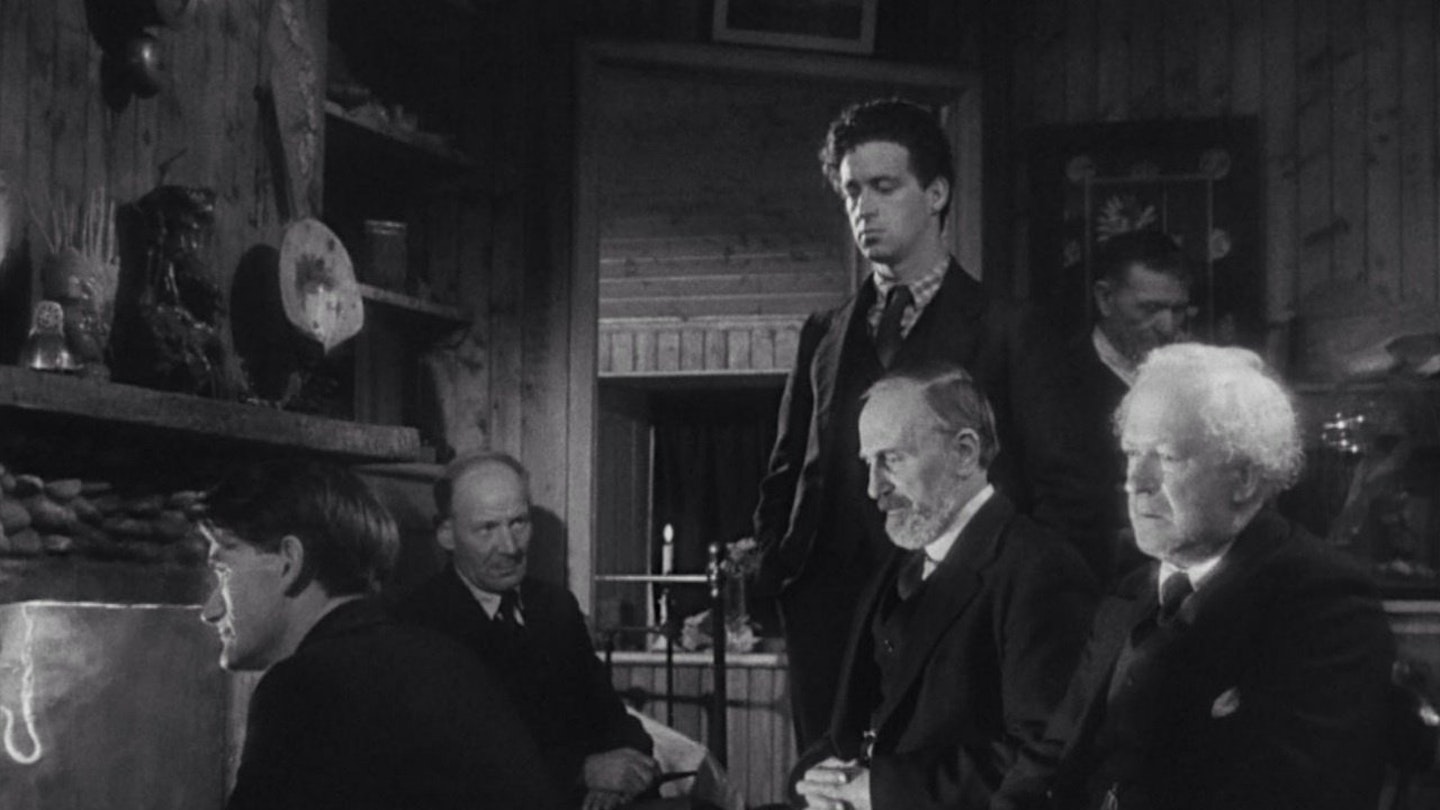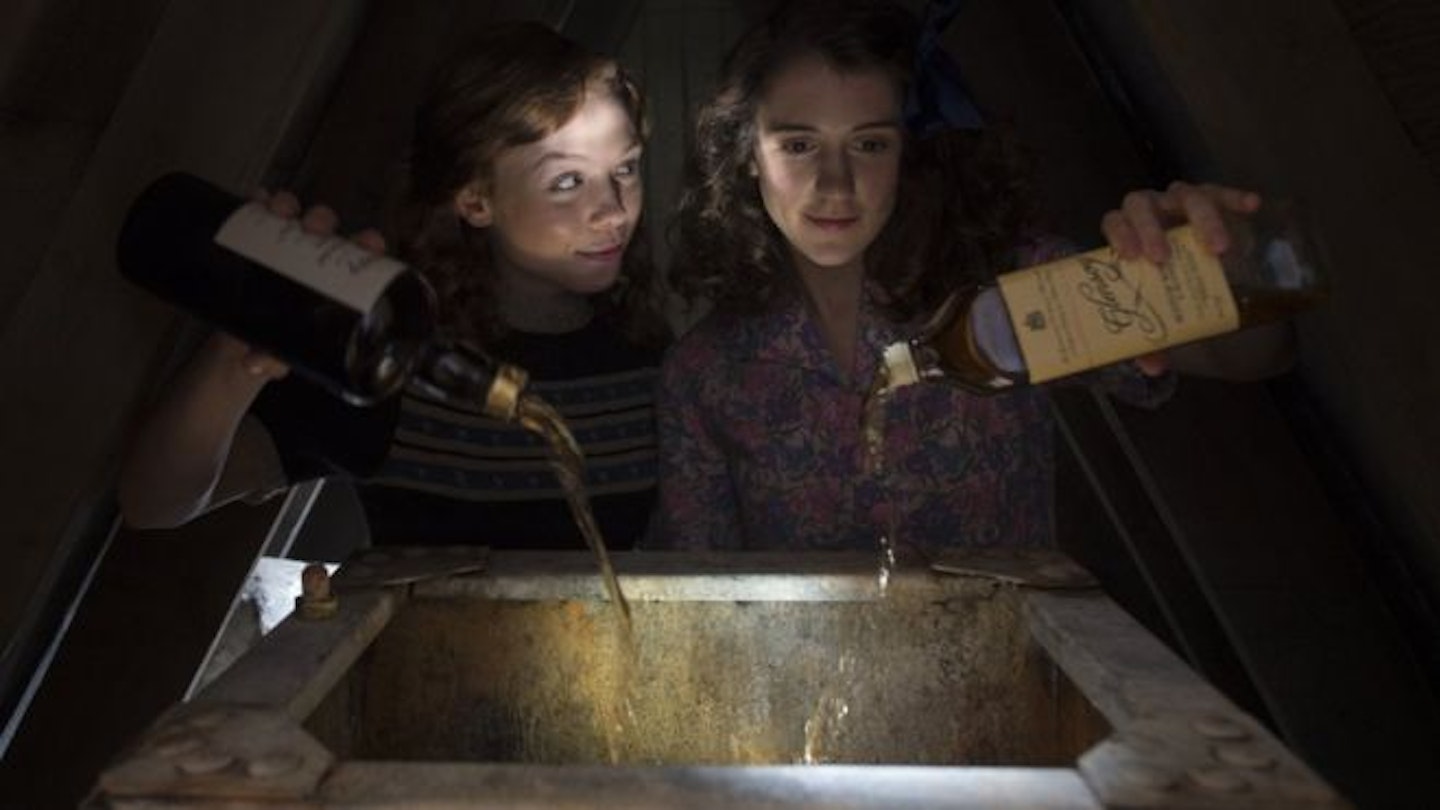A classic tale of gentle anti-authoritarianism — the template also for 1998's Waking Ned —it was a natural for Ealing studios whose head, Michael Balcon, outlined his company's theory about comedy thus: "We take a character or group of characters and let them run up against either an untenable situation or an insoluble problem." The problem for the islanders is Captain Waggett, the English leader of the island's Home Guard, opposed to the islander's looting and prepared to do everything to maintain law and order as he sees it. Balcon handed the job of producer to his publicity director, Monja "Danny" Danischewsky.
The novice producer appointed a novice director, Alexander "Sandy" Mackendrick, employed in Ealing as a writer. The American-born, Scottish-educated Mackendrick did have some limited experience of directing, having shot documentaries for the Ministry Of Information during the War. Understandably, as one of these was entitled Kitchen Waste For Pigs he preferred to regard Whisky Galore! as his first picture.
The pair settled on Eriskay's neighbouring island of Barra (rechristened Todday in the film) as their location and assembled their cast largely from Ealing's band of repertory regulars. Basil Radford was cast as Waggett, a similarly officious role to the one he took in Passport To Pimlico, while the part of the canniest of the islanders, Macroon was taken by Wylie Watson. A young Gordon Jackson was cast as the mother-dominated George while Jean Cadell played the formidable matriarch to great comic effect. The film was also notable for ushering in a golden period in the career of Joan Greenwood, one of British film's most unsung — not to mention unreasonably attractive — actresses, who wrapped her husky voice around the Gaelic lilt of Macroon's daughter, Peggy.
Notwithstanding the talents of the cast, the shoot still threw up countless problems. Incessant rain limited outdoor filming drastically and caused the final budget to overrun by £20,000, a substantial amount for the permanently cash-strapped studio. Mackendrick, too, was dissatisfied with the quality of his work, later commenting, "It looks like a home movie. It doesn't look like it was made by a professional at all. And it wasn't."
More seriously, the Calvinist Mackendrick clashed with the Jewish Danischewsky over the film's moral message, with the director siding with Waggett while the producer went with the islanders. Partly to appease Mackendrick and moral guardians in the US, a rather unconvincing coda was tacked on declaring that the whisky soon ran out and the islanders returned to their former unhappiness. (In truth, there was no documentary evidence that the islanders ever went short of whisky again).
The film was released in June 1949, the same month as Kind Hearts And Coronets, stamping that year, which also saw the release of Passport To Pimlico, as Ealing comedy's annus mirabilis. The film's themes chimed with a country growing weary of rationing and austerity. As Michael Balcon later acknowledged, "The country was tired of regulation and regimentation and there was a mild anarchy in the air." Such anarchy wasn't shared in the US, however, where restrictions about endorsing alcoholic products, necessitated a name change to Tight Little Island. France, too, opted for a different title, namely Whisky A Go-Go.
Almost a decade later, Compton Mackenzie and Danischewsky attempted to return to their former glories with a sequel of sorts, Rockets Galore! wherein the islanders of Todday mobilised against a missile site being built there. The film failed to recapture its predecessor's charm. Intriguingly, however, Mackenzie might have found a more fertile sequel, had he stayed closer to his original source of inspiration. Papers released earlier this year show that the SS Politician, along with its whisky, was also carrying 290,000 Jamaican ten shilling notes. Over 75,000 of them were never unaccounted for, although many were presented in banks throughout the world suggesting they did not sink as authorities initially suggested. And one, at least, can be accounted for. A ten shilling note remains pinned above the bar in the main pub on the Isle Of Eriskay. A pub which was renamed The Politician, in tribute to the vessel which provided so much free inebriation and possible wealth.

